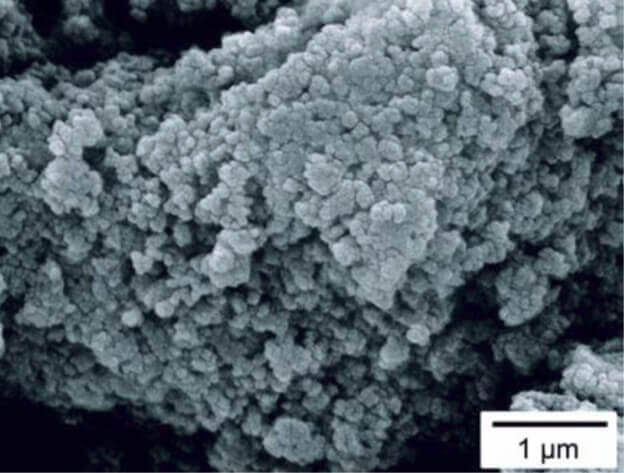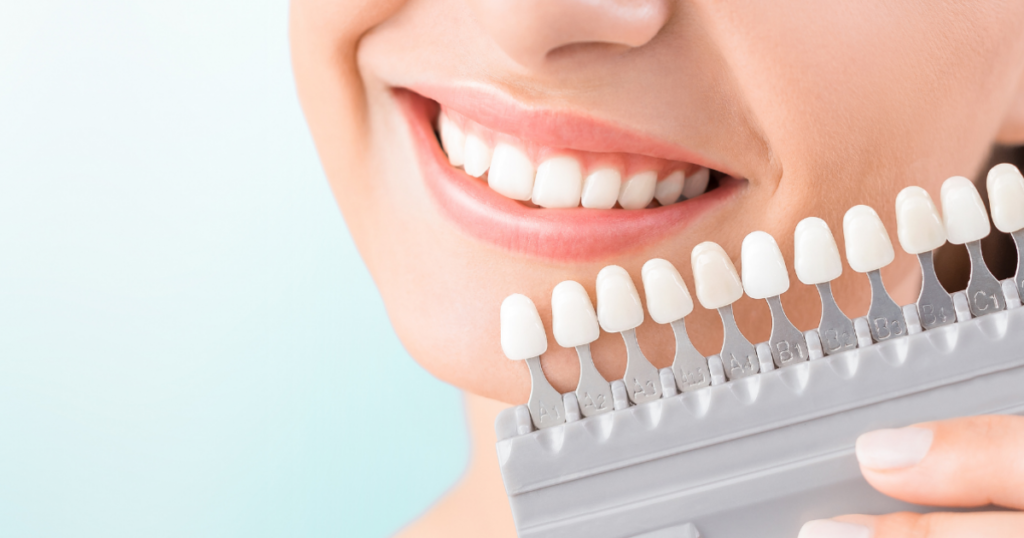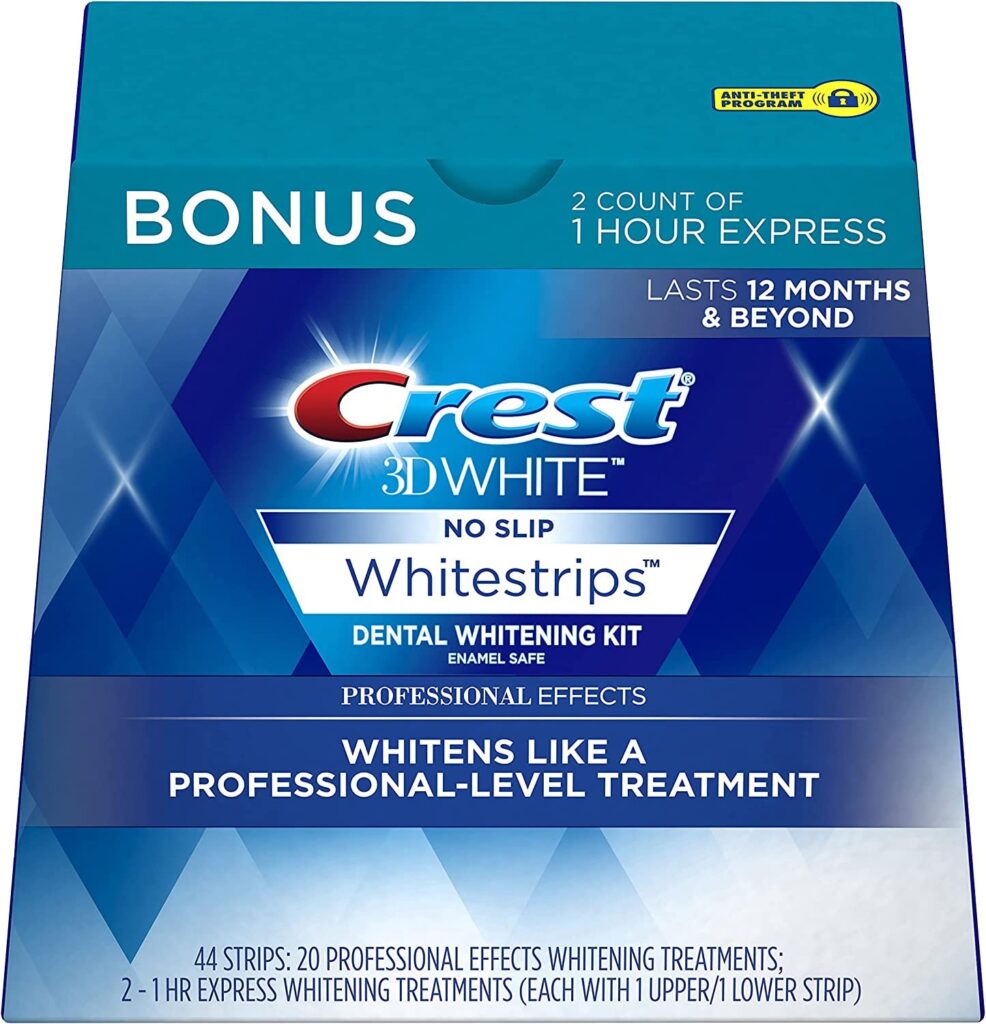A bright, radiant smile is something many of us aspire to have, and it is widely known that having white teeth can give you a healthier and more attractive smile. Today, there have been huge interest among those who are looking to whiten their teeth without resorting to harsh chemicals or expensive dental treatments.
Fluoride has long been hailed as a hero in dental care, with its ability to strengthen tooth enamel and protect against cavities. Its presence in toothpaste, mouthwashes, and even tap water has been a cornerstone of dental health practices for decades. But can fluoride also deliver a whitening effect, or is its impact limited to cavity prevention? This is a question that many people have asked, and the answer is not as straightforward as you may think.
Unfortunately, answer is no, fluoride does not whiten the teeth. This is because fluoride is not a teeth whitening agent and does not contribute directly to the whitening of the teeth. However, it does contribute to teeth whitening through other means.
In the rest of this article, we will take a deep dive into the science behind fluoride, its impact on tooth enamel, and its potential to contribute to teeth whitening. We will carefully examine the claims and separate fact from fiction, providing you with a comprehensive understanding of fluoride’s true benefits for dental health. By the end, you’ll have a clearer understanding of fluoride’s role in your dental care routine and how it contributes to maintaining a healthy, confident smile.
What is Fluoride?
Fluoride is a naturally occurring mineral that is widely recognized for its beneficial effects on dental health. It can be found naturally in various sources such as water, soil, plant, and rocks, as well as in food such as spinach, grapes, and potatoes.
When it comes to oral care, fluoride plays a crucial role in strengthening tooth enamel and protecting against tooth decay. Tooth enamel, the outer layer of the tooth, is composed mainly of minerals, primarily hydroxyapatite. However, this mineral structure is susceptible to erosion caused by acid-producing bacteria in the mouth and acidic food and drinks. When the enamel is demineralized, it becomes weaker and more prone to cavities.
Fluoride work to protect and strengthen the teeth in numerous ways (stated in the following section) In fact, the benefits of fluoride have prompted local communities and manufacturers to add the mineral into toothpastes and drinking water to help prevent tooth decay.
The Centers for Disease Control and Prevention (CDC) estimates that drinking fluoridated water reduces cavities by about 25% in children and adults and contributes to an average dental savings of $32 per person per year. As such, many public, medical, and dental organizations including the World Health Organization (WHO) recommends the fluoridation of local water systems to help prevent cavities among the community. Water fluoridation was recognized as one of the top ten public health achievements in the 20th century.
How Does Fluoride Protects the Teeth?
Fluoride protects the teeth through several mechanisms that contribute to maintaining their strength and resilience against decay. Here’s a closer look at how fluoride safeguards dental health:
- Enamel Strengthening: When you consume fluoride, it integrates into the enamel—the outer layer of your teeth. It interacts with the minerals in the enamel, such as hydroxyapatite, forming a strong compound known as fluorapatite. This process is known as fluoridation. Fluorapatite is more resistant to acid attacks from bacteria and acidic foods, making the enamel harder and less prone to decay.
- Remineralization: Fluoride promotes the process of remineralization, which helps repair early stages of tooth decay. When acids from bacteria or acidic foods attack the enamel, they demineralize the tooth structure, causing it to weaken. Fluoride helps to replenish the lost minerals, such as calcium and phosphate, and encourages the rebuilding of the enamel. This remineralization process can reverse the initial stages of decay and strengthen the enamel, making it more resistant to future acid attacks.
- Acid Resistance: Fluoride can make the teeth more resistant to acid erosion. Acidic foods and beverages, as well as bacteria-produced acids, can erode the enamel and lead to tooth decay. Fluoride reinforces the enamel’s defenses by forming a protective barrier that resists acid penetration. This acid resistance helps minimize enamel erosion and reduces the risk of cavities.
- Inhibition of Bacterial Activity: Fluoride inhibits the growth and activity of bacteria in the mouth. Bacteria feed on sugars and carbohydrates from the food we consume, producing acid as a byproduct. This acid attacks the teeth, leading to enamel erosion and decay. By reducing the bacteria’s ability to thrive and produce acid, fluoride helps maintain a healthier oral environment and decreases the risk of tooth decay.
- Systemic Protection: Fluoride can provide systemic protection for developing teeth. If fluoride is ingested during the early stages of tooth development, such as through fluoridated water or dietary sources, it becomes incorporated into the developing teeth. This systemic exposure strengthens the teeth from within, making them more resistant to decay even before they erupt into the mouth.
You may be interested in: How To Prevent Decalcification of Teeth?
Regular exposure to fluoride, whether through fluoridated water, toothpaste, or professional dental treatments, is essential in providing this protective effect and reducing the risk of cavities.
However, it is important to note that excessive use of fluoride can lead to a condition called dental fluorosis. Mild cases of dental fluorosis are characterized by small white or opaque spots on the teeth while severe cases can cause pitting and brown stains on the enamel. That said, The condition is purely cosmetic and does not require treatment unless it causes significant aesthetic concerns.
Can Fluoride Whiten Teeth?
As mentioned, fluoride cannot whiten a tooth. Its primary role is to strengthen tooth enamel, prevent tooth decay, and promote oral health. While fluoride can help maintain the natural color of your teeth by protecting against stains and enamel erosion caused by plaque and acid, it does not have the ability to remove existing stains or significantly change the shade of your teeth.
However, fluoride can contribute indirectly to the whitening of the teeth. This is due to the enamel strengthening effects as explained previously. Dentin, which is a hard, yellowish substance beneath the enamel, plays an important role as it supports the enamel and protects the tooth pulp from damage. However, the dentin is partly responsible for the tooth’s yellowish color. Fluoride improves the appearance of the teeth by making the white enamel thicker and the yellowish dentin less visible.

You may have seen whitening toothpaste and wondered if it is fluoride that does the job of whitening the teeth. While it is true that these toothpaste contains fluoride, it is the abrasive ingredients that work to remove surface stains. Abrasives such as hydrated silica and calcium carbonate contain rough edges and they remove stains by physically scrubbing the surface of the teeth.
How to Whiten Teeth?
Tooth whitening typically involves the use of peroxide-based whitening agents, such as hydrogen peroxide or carbamide peroxide. These substances can penetrate the enamel and break down stains, resulting in a brighter appearance.
When hydrogen peroxide comes into contact with the teeth, it breaks down into oxygen and water. The oxygen molecules then penetrate the enamel and dentin, breaking down the molecules that cause stains. This process, known as oxidation, can effectively remove surface stains on the teeth, such as those caused by coffee, tea, and tobacco. Carbamide peroxide work in a similar way but is less powerful as it breaks down at a much slower rate.
There are several methods available for teeth whitening, ranging from professional treatments performed by a dentist to over-the-counter options that you can use at home. Here are some common methods for whitening teeth:
- Professional In-Office Whitening: Dentists can perform professional teeth whitening procedures in their office. This typically involves applying a bleaching agent, such as hydrogen peroxide or carbamide peroxide, to the teeth and activating it with a special light or laser. The procedure usually takes about one to two hours and can produce noticeable results in a single session.
- At-Home Whitening Kits: Dentists may provide custom-made whitening trays that you can use at home. These trays are filled with a bleaching gel and worn for a specified period, usually a couple of hours each day or overnight. The treatment can take several days or weeks to achieve the desired level of whitening. The most popular product in the market is Opalescence 35% Teeth Whitening Kit as it contains a high enough concentration to achieve desirable results within weeks.
- Over-the-Counter Whitening Products: There are numerous whitening toothpaste, whitening strips, and whitening gels available for purchase without a prescription. These products typically contain lower concentrations of bleaching agents compared to professional treatments, but they can still provide noticeable results over time. It’s important to follow the instructions carefully when using these products.
- Natural Remedies: Some people opt for natural remedies to whiten their teeth, although their effectiveness may vary. These remedies include brushing with baking soda, using hydrogen peroxide as a mouthwash (in diluted form), or rubbing the teeth with the inside of a banana peel. However, it’s important to note that natural remedies may not be as effective as professional treatments and may not provide uniform or long-lasting results.
It’s important to note that the use of hydrogen peroxide or carbamide peroxide at high concentrations or for an extended period of time can cause damage to the teeth, gums, and soft tissues. In some cases, the damage is permanent. Before starting any teeth whitening products or treatment, consult with a dentist as they can evaluate your oral health, determine the underlying cause of tooth discoloration, and recommend the most appropriate whitening method for you.
Last but not least, maintaining good oral hygiene practices, such as regular brushing, flossing, and dental cleanings, can prevent future stains and maintain the whiteness of your teeth. Remember, prevent is better than cure!
Takeaway
In conclusion, while fluoride is an essential mineral for maintaining dental health and preventing tooth decay, it is not intended or known for its ability to whiten teeth.
Teeth whitening, on the other hand, involves the use of specific whitening agents that can penetrate the enamel and break down stains, resulting in a brighter smile. While some dental products may contain fluoride along with whitening properties, the whitening effect is usually due to other active ingredients such as hydrogen peroxide.
To achieve noticeable teeth whitening, it is best to consult with a dentist who can recommend appropriate professional treatments or provide custom-made whitening trays for at-home use. Over-the-counter whitening products can also be effective to some extent, but they may not provide the same level of whitening as professional methods.
If you have specific concerns about teeth whitening or any aspect of your dental health, it’s always best to seek advice from a qualified dental professional
Disclaimer: It’s important to note that the information provided in this blog post is for informational purposes only and should not replace professional dental advice. If you have specific concerns about teeth whitening or any other dental issues, it’s always best to consult with a qualified dentist.








